The Forest Man of India
One Man Single-Handedly Plants Forest Bigger Than Central Park
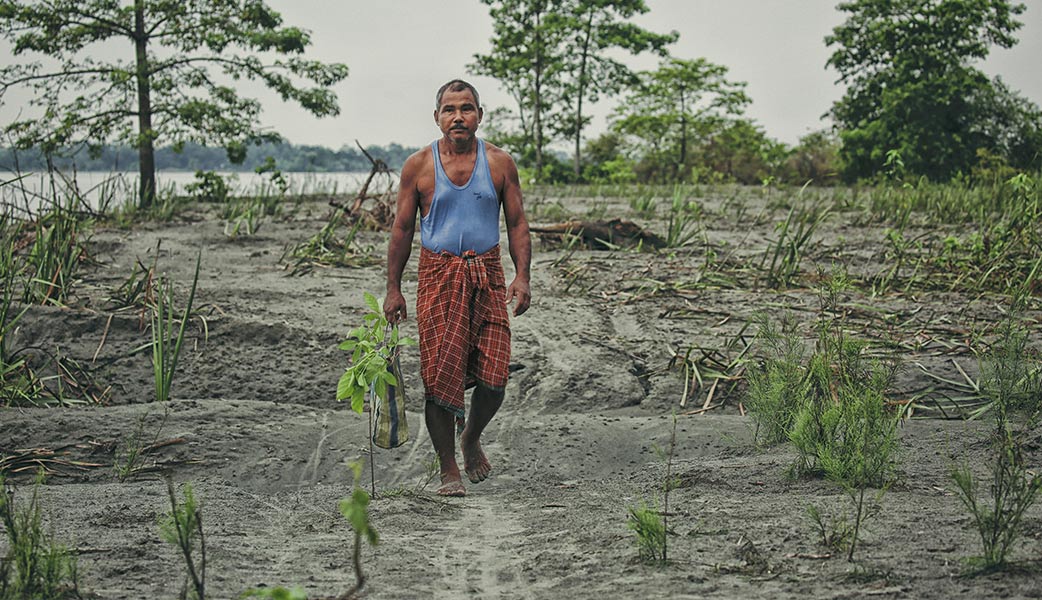
Naina interviews and writes about the life of Jadav ‘Molai’ Payeng, an exceptional and compassionate man who surrendered his life to giving.
Jadav “Molai” Payeng has single-handedly created a thriving, 550 hectare forest from a ‘barren’ sandbar in the middle of the river Brahmaputra of Assam.
Payeng belongs to the Mishing tribe and since 1979 Jadav has been planting trees. His forest is larger than New York City’s Central Park (341 hectares). His forest has transformed what was once a barren wasteland, into a lush oasis. This place is full of trees Jadhav has planted himself. In beginning he found planting trees very difficult and time consuming but later it became much easier for him as he started getting seeds from the trees themselves.

Born in the state of Assam in northeastern India in 1963, he had a normal childhood as simple as it can be in one of the remotest parts of India before he heard the tiny voice of his heart. During the floods of 1979, walking along the sandbars of the Brahmaputra River, Jadav saw that many snakes had been swept ashore but found them dead a few days later due to heat and the absence of trees. He approached the forest officials to help plant trees but they told him to do so himself.
Athough it was a painstaking process, Jadav started planting bamboo in the sandbars. A year later, in 1980, the Assam Forestry Division initiated a plan to reforest two hundred hectares of land in one of the sandbars of the Brahmaputra, known then as Arun Chapori. Jadav enrolled for the job and started planting trees for the project. Although the project was finished within five years, Jadav decided to stay and since then he remained in Arun Chapori, planting trees and taking care of them with utmost compassion.
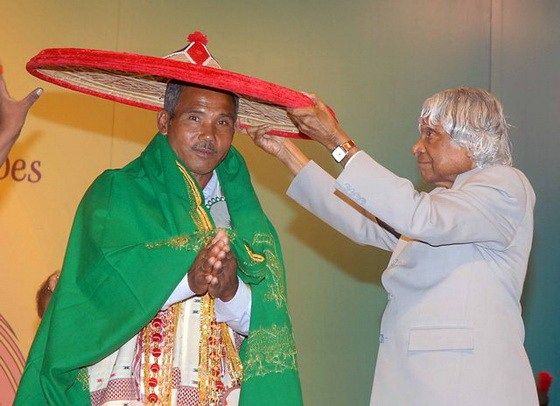
Payeng has been honoured with numerous important awards over the last years. P. J. Abdul Kalam, former President of India, gave him the title ‘Forest Man of India’ in 2012, and in 2015, he was honoured with ‘Padma Shri’, the fourth highest civilian award in India.
A fruit of pure love and will: the sandbar and neighbouring area today is a forest of more than 1000 hectares in size and known as Molai Forest, aptly named after its creator and caretaker. The flora and fauna has grown fascinatingly with tigers, rhinoceros, rabbits and deers making Jadav’s forest their home. A herd of around 100 elephants regularly visits the forest every year and generally stay for around six months. They have given birth to 10 calves in the forest in recent years.
Jadhav lives with his wife Binita, two sons and a daughter in a bamboo and wood hut. He sells cattle milk to the nearby villages, which provides him with a meager but sufficient source of income.
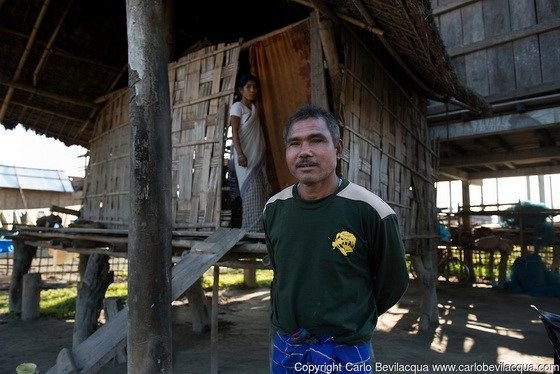
Credit to Carlo Bevilacqua www.carlobevilacqua.com
In a meeting with this amazing man at his residence in Kokilamukh, Jorhat, where he lives with his wife and three children. He was very forthcoming to present his views.
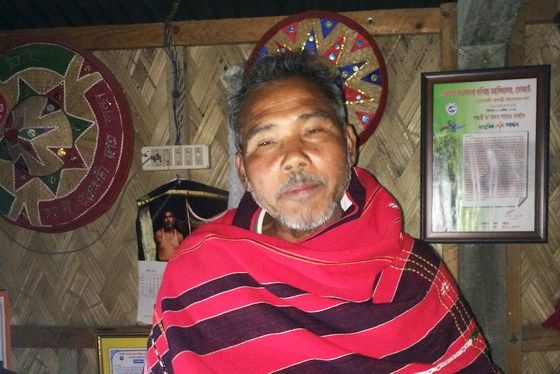
Jadav, clad in a simple gamucha dhoti and a naga shawl wrapped around him, spoke on various critical issues. The following is an excerpt from the interview, translated from Axomiya (Jadhav’s native language) into English.
Patriotism
I have lived in the village since my birth and attended the village school. The beautiful village is located in the heart of nature and since childhood I have spent my time with botanists and learnt from them. That’s why it does not matter what my country has given me, but what matters is what I can do for my country. Dr. Devojit Bezbaruah [Assistant Professor, Dibrugahr University, Assam, ed.] once told me that what I am doing will earn me lots of enemies. I really do not care for these people who protest on the streets because they are really not contributing anything to the society, to the country. They don’t even know how to plant a sapling.
The other day, ULFA [The United Liberation Front of Assam, ed.] Chief Anup Chetia told me that they are setting up a non-profit organization and want me to join. I told him it’s of no use unless you all set an example by conserving the rhinos and other animals and help nurture and preserve nature. How can I be a part of an organization that itself allows or tolerates the killing of animals and destruction of trees in its own areas?
Anup Chetia told me that he spent 30 years in a jail in Bangladesh but the question is coming from Lachit’s own land [Lachit Borphukan, one of the greatest heroes of Assam in the 17th century, and one of the symbols of resistance to the Mughal rule, ed.], why did you have to waste your life in a Bangladeshi jail? Why could not you do work in your own land? I have been planting trees, preserving nature and creating forests in Lachit’s land for the last 36 years, I have not wasted my time in some jail in Bangladesh. I told him if he wants to do really good for the country and his own land he should do it here.
Now Paresh Barua [a political activist with the rebel group ULFA, which is seeking sovereignty for Assam from the Indian State, ed.] keeps fleeing to various countries. What is his credibility by killing people and destruction? Does this help in the development of your land? This is totally unacceptable. If he is really the son of the soil, then he should join with the Indian army and fight our enemies on the border. My life objective is totally different from theirs. I do not care even if someone kills me. My objective is to help provide oxygen to humanity, including a thief and a sinner, a president and a commoner. That is why I do not care what others think or do, my joy is in helping the trees to provide oxygen for all in this existence.
Questioning the World Economic Forum for Climate Change
In Paris, I raised the question to the Economical Forum for Climate Change which has over 200 countries as members, “Why do you emphasize the word economy so much, of what value is economy if there is no oxygen?” I asked them to stop breathing for two minutes and then realize the importance of oxygen. We all know that trees give us oxygen and if these 20,000 individuals sitting in the forum plant one tree each, they will help themselves only. And if the entire population of 7,5 billion in this world plants only one tree each, that will help stop climate change. Other than that there is no way out.
Who is God?
When I asked the Forum for Climate Change if they have ever seen or met God, not a single person could reply. Who is God? Your parents are God because they give you life and when they pass away, who do they leave you with? – prakriti [nature] – and other than nature there is no God. Therefore he who loves nature can only love this world, only he can love the whole existence of flora, fauna and humanity. To talk or give a lecture in a forum is really not my subject.
Compulsory Subject on Environment in Schools
When JNU [Jawaharlal Nehru University, New Delhi] conferred this award – Forest Man of India – to me, the Dean told me that I should visit schools, colleges, universities; big meetings and conferences are not really my platform. I agreed and visit schools and colleges in various parts of the country and the world. Because the tree that taught us to make a garment from it and the bird that taught us to fly don’t speak, we started to play the role of a destroyer and hence we have the issue of climate change today.
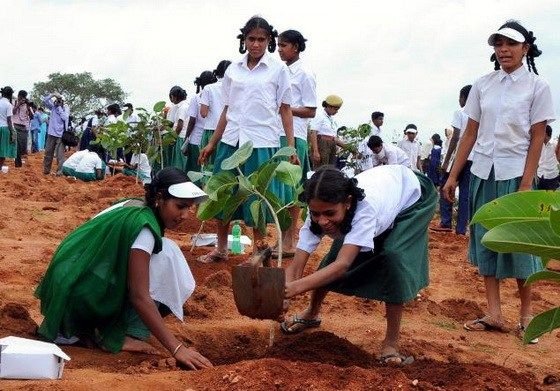
During my visits to various schools and colleges I noticed that they have been observing Vanamahotsava [Festival of Trees] since Jawaharlal Nehru’s time and for this occasion millions of saplings are purchased and given to these institutions – but where are the trees?
In 1972, in Stockholm, the capital of Sweden, 136 nations pledged to work together to prevent climate change. But till today, we see no qualitative change. Is our education system such that adults cut trees and children uproot small saplings? Where is our awareness?
I believe that our education system must have environmental science as a compulsory subject in schools and we should put emphasis in creating more environmental science research institutes, and the research and awareness will bring a positive change for the eco system. If it is made compulsory for Lower Primary schools to make each Class 1 student plant one sapling and nurture it for five years, he/she should be considered to advance to Class 6 only if the tree has grown by then.
Thousands of students take admission every year – imagine the number of trees the country will have in five years. In ten years India will become totally green. The students must be taught to co-exist with the insects, birds and animals and this will bring a great balance in the whole eco system and students can help create this new green world. I urge the Education Minister of India to bring that change in the school’s curriculum.
In September 2016, I went to Taiwan. Hiuen Sang [celebrated Chinese traveler who visited India ca. 635 CE, ed.] passed the Himalayas from China to come and study at Nalanda University and today, our Indian scientists, engineers, all the creative and talented brains are leaving India to work abroad. They are contributing to the development of other nations but could have otherwise helped in contributing towards the growth of our own nation. It is a sorry state of affairs.
In Taiwan I saw they are making roads with 4 lanes, 6 lanes, but without destroying the trees. But it saddens me to see that thousands of trees are being uprooted and destroyed to make 4 lane roads in India. Why is this happening in here? It is because we are an unaware nation. In the name of development we make policies which are not healthy for the environment.
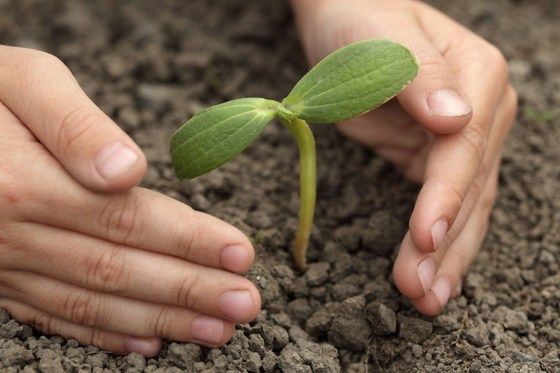
Hence I believe that for awareness towards our environment and for our survival we must start to educate and spread awareness starting with Primary schools.
Message to Mr. Narendra Modi
My message to the Prime Minister of India is that demonetization and bringing back black money is all fine, but if humanity doesn’t survive what is the value of money? So I would like to say to Mr. Modi to take measures to prioritize saving the ecology and environment of our country and focus on planting trees for the sake of the present and future generations.
On Women Empowerment
I am happy with Pramila Rani Boro [Minister of Forest and Environment, Assam] for her efforts in empowering women of the region; she travels on foot through forest and rough terrain, which shows her dedication and concern. Being a female she has done extremely good work, more than the preceding ministers. During the previous Assam forest ministers’ time, what they have done is only the destruction of nature; hundreds of animals were killed and nobody bothered about it. Pramila Rani Boro has taken some good measures for the preservation of forests and nature and her role is very much appreciable. I convey my thanks to her. She deserves to be awarded for her work. Women can do much better than men and they must come forward; with their understanding, love and concern for another being, they can mother a child as well as a plant much more beautifully than men.
Appeal to the Media
The media is very prompt in picking stories that are short-lived and sensational but these issues which are of serious concern to humanity at large – such as climate change or depletion of the eco system – are never published. The media can bring about a great change if they would give more coverage on environment. And then we will surely have a beautiful green world and an eco system in which each individual contributes something to mother nature.
More Photos.....

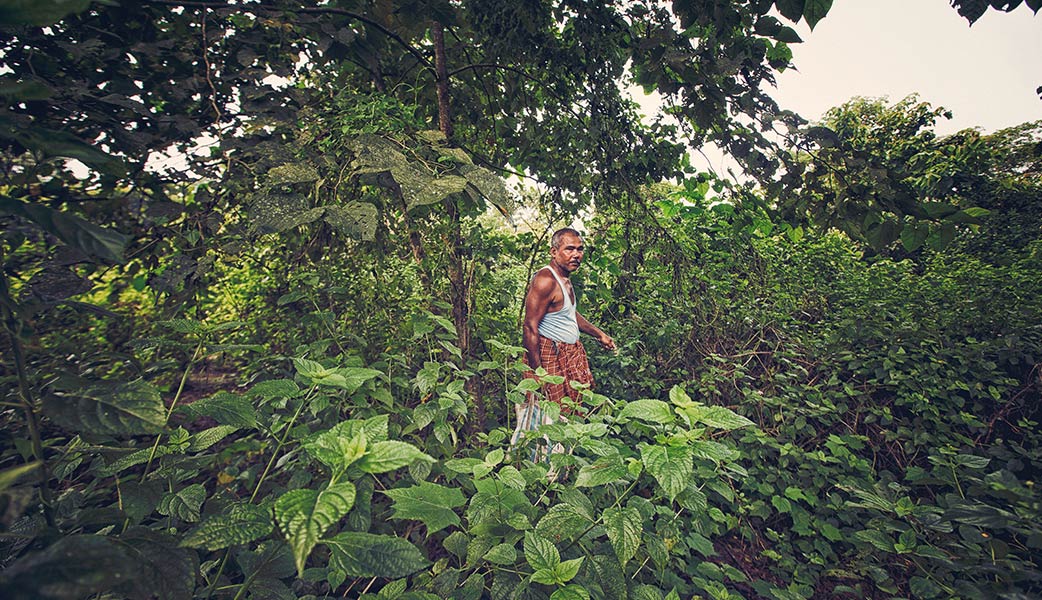
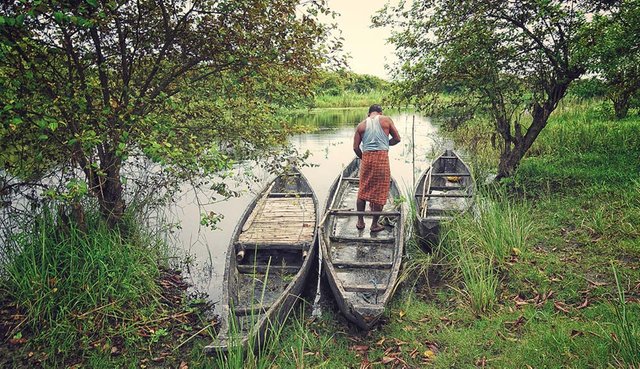
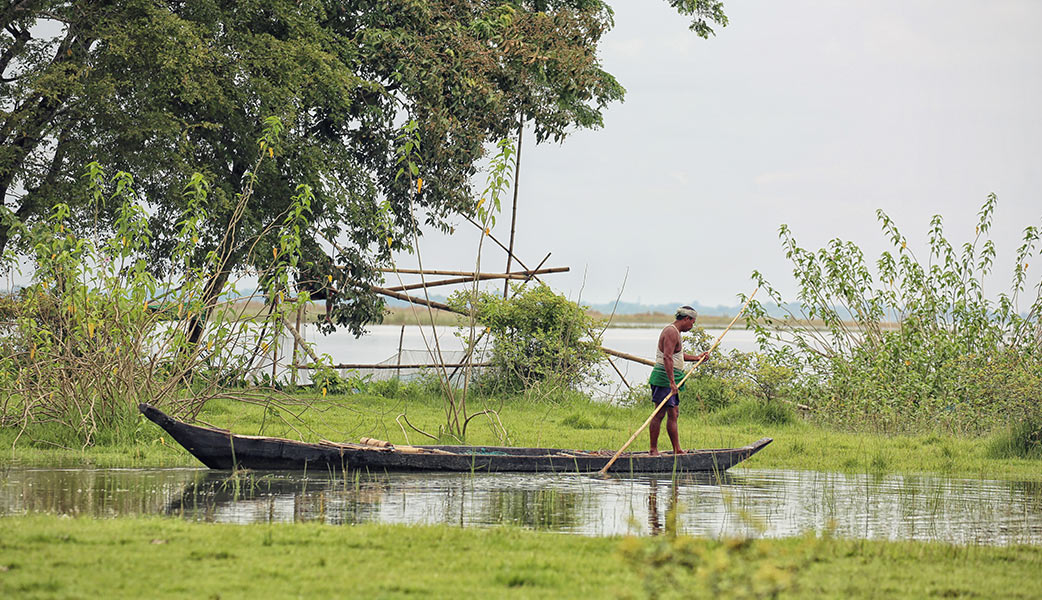
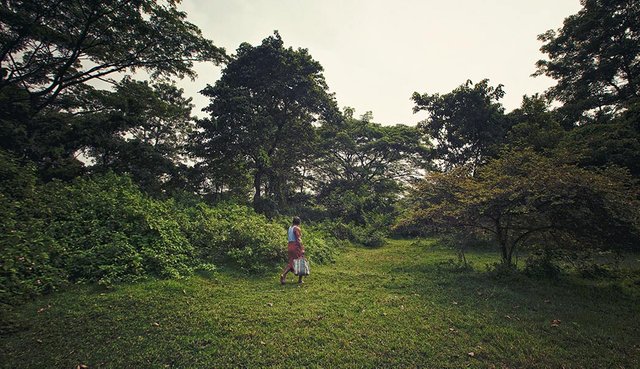
Source 1
Source 2
Source 3
Source 4
Originally posted by Naina

She is an MBA and also holds a Master’s degree in Mass Communication. Deeply inspired by the love and dedication of the founder of the Osho Centre in Delhi, Om Prakash, she left her career as a producer/journalist to join Osho’s caravanserai and worked as the coordinator of publications and media relations at Osho World Foundation, New Delhi for many years. She now lives in Assam, pursuing her interest in writing and communications.